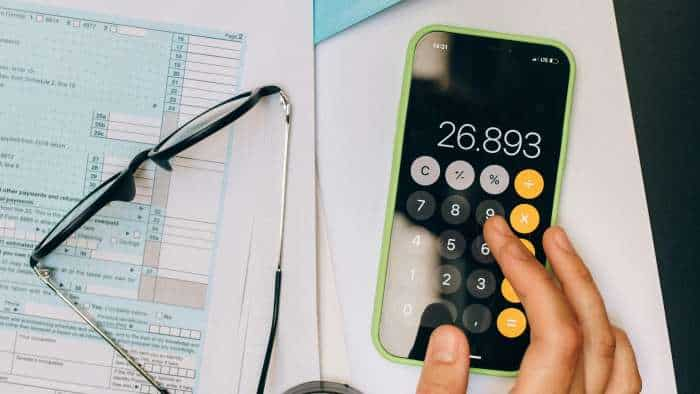NCRTC developing over 8,000 vehicles parking spaces at its stations
"There are 25 stations on the entire RRTS corridor from Delhi to Meerut. The parking spaces are being developed considering the expected footfall at these stations. The biggest parking space is at Meerut South station where around 300 cars and 900 two wheelers can be parked. The second big parking space is being developed at Sarai Kale Khan station in Delhi where around 275 cars and 900 two-wheelers can be parked. In these parking spaces, electric charging stations are also being installed to boost convenience, clean energy adoption and efficient last-mile connectivity," the statement said.
)
The National Capital Region Transport Corporation (NCRTC) has been developing over 8,000 vehicle parking spaces at its stations on the Delhi-Ghaziabad-Meerut RRTS corridor, a statement said on Thursday.
"There are 25 stations on the entire RRTS corridor from Delhi to Meerut. The parking spaces are being developed considering the expected footfall at these stations. The biggest parking space is at Meerut South station where around 300 cars and 900 two wheelers can be parked. The second big parking space is being developed at Sarai Kale Khan station in Delhi where around 275 cars and 900 two-wheelers can be parked. In these parking spaces, electric charging stations are also being installed to boost convenience, clean energy adoption and efficient last-mile connectivity," the statement said.
The Namo Bharat train services are connecting regional nodes across NCR at high speed.
The RRTS stations are strategically located at an average distance of five to 10 km. With an intent to promote use of public transport, the NCRTC is taking various initiatives to provide best-in-class first/last mile connectivity, it said.
In this direction, it has provided ample space for commuters to park their personal vehicles at the station parking area and enjoy the comfortable, safe and reliable ride of Namo Bharat.
This will not only significantly reduce the load of private vehicles on the Delhi-Meerut route, but also save road accidents and help in reducing air pollution, the statement stated.
It is estimated that with the implementation of entire Delhi – Meerut corridor, the share of public transport will increase from the current 37 per cent to 63 per cent.
The NCRTC is also working on providing various options of last mile connectivity to the commuters and an expression of interest for providing various types of feeder services on all 25 stations has recently been invited, it stated.
"The entire corridor's parking facilities will likely accommodate more than 1,600 cars and over 6,500 two-wheelers. At present, there are no parking fees for the commuters coming for pick and drop only as they can park their vehicles free of cost for first 10 minutes. Beyond that, a fee structure will be applicable, which is for up to six hours, Rs five for bicycles, Rs 10 for two-wheelers and Rs 25 for cars; for six to 12 hours, Rs five for bicycles, Rs 25 for two-wheelers, and Rs 50 for cars; and after 12 hours until the end of RRTS operation hours, Rs 10 for bicycles, Rs 30 for two-wheelers, and Rs 100 for cars," the statement said.
Night parking during non-operational hours will cost Rs 20 for bicycles, Rs 60 for two-wheelers, and Rs 200 for cars, it stated.
A 34 km section of this corridor is already operational for public with eight RRTS stations where parking facilities have been provided to the commuters.
Facility to park auto rickshaws is also available in these parking lots, it said.Special provisions have been made at the stations for pickup and drop off facilities.
The stations have been designed in such a way that vehicles coming from the main road can easily pick up and drop passengers, it stated.
Along with this, keeping in mind the movement of specially-abled passengers, separate place has been earmarked for parking their vehicles and ramps have also been made for easy entry into the station so that they can avail the facility to travel in Namo Bharat train seamlessly, the statement said.
The NCRTC is also planning to install battery swapping stations in its parking areas for both commuters and last-mile service providers.
This initiative will promote sustainable modes of transport at a pocket-friendly cost for commuters. The battery swapping stations will not only encourage the use of electric vehicles but also enhance last-mile connectivity for people, it stated.
Get Latest Business News, Stock Market Updates and Videos; Check your tax outgo through Income Tax Calculator and save money through our Personal Finance coverage. Check Business Breaking News Live on Zee Business Twitter and Facebook. Subscribe on YouTube.
05:43 PM IST











 At 78.67 lakh, Delhi Metro records highest-ever daily ridership on November 18
At 78.67 lakh, Delhi Metro records highest-ever daily ridership on November 18 NCRTC signs MoU with DMRC for integrated QR-ticketing system
NCRTC signs MoU with DMRC for integrated QR-ticketing system NCRTC MD inspects Namo Bharat corridor in Delhi; trains to operate soon
NCRTC MD inspects Namo Bharat corridor in Delhi; trains to operate soon  Shalabh Goel appointed NCRTC's MD
Shalabh Goel appointed NCRTC's MD NCRTC's first EV charging station operational at Sahibabad RRTS
NCRTC's first EV charging station operational at Sahibabad RRTS